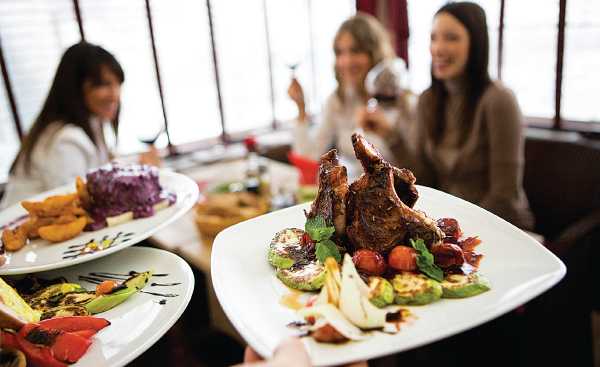ARE YOU EATING FOR YOUR AGE?
Nutritional needs change as we go through life, yet most people continue to eat as they did in their 20s when they are in their 50s. In this two-part series


Nutritional needs change as we go through life, yet most people continue to eat as they did in their 20s when they are in their 50s. In this two-part series article, we give you a run-down on how you should be eating as you go through various age milestones.
Everyone knows eating a healthy balanced diet comprising of all essential nutrients is important for maintaining our bodies in a healthy state. Nutritionists recommend eating plenty of wholegrains, lean protein, and five portions of fruit and vegetables daily. If you manage to do this most of the time, then you have set yourself up for good basic health.
However, there are foods that are particularly beneficial for you at certain ages, when changes in your body occur and lifestyle leading to different nutritional demands. In this article we tell you what you should be eating in your 20s and 30s and in the next issue we shall look at your 40s and 50s.
THE FUN-LOVING 20s
The twenties come with their challenges. Chances are you are working hard in college, looking for a job or trying to establish a career. You will also be focussed on having a social life, a love life, pursuing other interests and possibly preparing for children. With all this going on, you can neglect your health by not eating the right things. When you are busy, it is easy to end up skipping breakfast or lunch and surviving on coffee or tea and quick energy boosters like chocolate and crisps. Because you are young, you may also not be concerned about issues such as high cholesterol, blood pressure and diabetes risk. Your 20s is also your final opportunity to lay down new bone, with peak mass reached at 30. Unfortunately, this is probably the decade in which you are least likely to be doing the right things for your bone health. Alcohol and crash dieting, both common in this decade, can take their toll on your bones.
Eating rules for your 20s
Dont miss breakfast. It gives you the energy boost you need to start the day and if you miss it, you will be far more likely to crave high- sugar snacks and caffeine later in the morning. The key is to eat something, even if it is just a quick bowl of cereal or plain yoghurt and a banana. The ideal breakfast for sustained energy, though, is a combination of low-glycemic-index carbohydrate with protein. A bowl of porridge, for example, topped with live yoghurt, chopped apple and seeds would be ideal, or a scrambled egg on a slice of 2wholegrain bread.
Load up on calcium. Dairy is the best source of calcium, so eat plenty of yoghurt, skimmed milk and cottage cheese. Regular cheese, though a good source, is very high in fat so eat it in moderation. Broccoli, cabbage, kale, dried fruit, soya beans, nuts and fish containing edible bones (for example, sardines) also contain calcium. If you are vegan or can’t eat dairy, talk to your doctor to prescribe calcium supplements.
Eat little and often. Snack on fruit, nuts and raw vegetables between meals. Dried fruit is fine if you don’t have too much as it is high in sugar. Choosing brown rice over white, wholegrain bread and wholemeal pasta will sustain your energy. These high- fibre foods are also great for stimulating a sluggish digestive system. Aim for five small meals a day instead of the traditional large three.
THE RESPONSIBILITY PACKED 30s
While late night and socialising may start to calm down in this decade, you are likely to have different demands on your time such as responsibilities at work, your partner, children and possibly hobbies. This can mean stress, especially if you feel torn in all directions. Stress may exacerbate skin problems, irritable bowel syndrome (IBS) and poor sleep. This is also the age at which hormonal issues can start to become apparent, for example fibroids and endometriosis. Many women also find their periods change at this age due to hormonal shifts. With most women now having babies in their 30s, fertility can also be a concern and may be affected by issues such as stress or poor diet.
Eating rules for your 30s
Dont rely on caffeine. It gives you a quick burst of energy but that is soon followed by a slump, leaving you needing more caffeine or a sweet treat. Caffeine may also make you jittery and exacerbate feelings of stress and it may also interfere with sleep. There is nothing wrong with coffee and tea as long as you don’t overdo it. Try not to drink more than two or three cups a day and avoid it 2close to bedtime.
Eat at least five portions of fruit and vegetables a day.
This is particularly important if you are trying to conceive. Ensure you are also getting a good spread of vitamins and minerals. Opt for freshly squeezed juice instead of processed varieties.
Reduce sugar intake. This is the decade when weight may start to be a problem. Weight aside, large amounts of sugar can upset the balance of bacteria in your gut, affecting digestion. It can also lead to seesawing blood sugar, which can increase feelings of stress. While there is no need to cut out sugar entirely, you should make an effort to keep it minimal.
Buy a copy of the August issue to read this and many more





